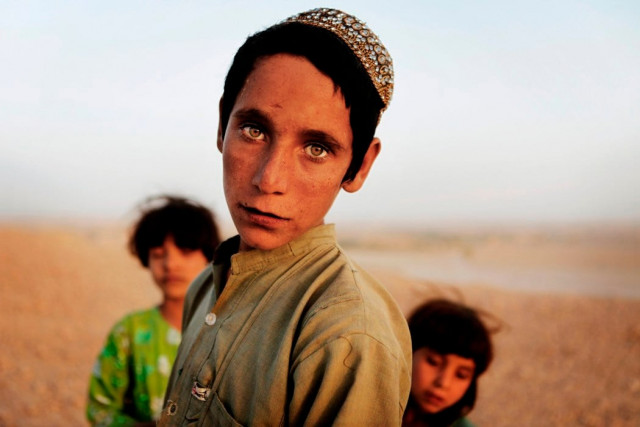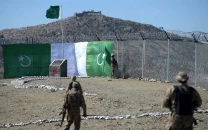Afghan repatriation: Fate of Azakhel refugees hangs in the balance
UNHCR says it is willing to provide assistance to resolve the matter that left thousands of Afghans stranded.

Thirty-year-old Azakhel camp on the outskirts of Peshawar has hosted refugees fleeing the war in Afghanistan in the 1980s and then those displaced by the 2010 floods.
But the fate of thousands of Afghan refugees, who wish to leave their host village for home, remains undecided even after year-long deliberations by the authorities.
The United Nations refugee agency UNHCR says it is willing to provide assistance to resolve the matter that has left thousands of Afghans stranded and incapable to return to their damaged settlements.
“As our assistance to flood victims continues, we believe a decision on Azakhel will allow another community to rebuild,” says Mengesa Kebede, UNHCR’s Pakistan representative. “So many people have restarted their lives after such a destructive natural disaster [floods 2010]. This is a testament to the strength and resilience of the people of Pakistan,” he says.
The agency has urged all those responsible for Afghan refugees, including Khyber-Pakhtukhwa’s authorities, the Ministry of States and Frontier Regions, and the chief commissioner for Afghan Refugees in Khyber-Pakhtunkhwa, to resolve the issue.
The provincial government and the chief commissioner have said that the refugees should relocate to the Shamshatoo settlement as Azakhel remains flood-prone. Several hundred families have moved to other refugee settlements while some 400 families have repatriated to Afghanistan. But a large number of the 23,000 displaced people, who came to Azakhel following summer 2010’s floods, are still living with relatives, in rented accommodation or makeshift shelters in the village.
While most people affected by the floods have managed to rebuild, the residents of Azakhel have still not been able to return. Most flood-displacement camps have been closed except for the five operating in Jaffarabad, Balochistan.
The UN refugee agency agrees that not all areas of Azakhel are suitable for reconstruction but a technical assessment carried out last year concluded that homes and infrastructure could effectively be rebuilt on higher ground. The revelation spurred deliberations about allowing Azakhel refugees to rebuild but as they drag on, the fate of thousands waiting to return home hangs in the balance. Edited by Zainab Imam
Published in The Express Tribune, July 23rd, 2011.



















COMMENTS
Comments are moderated and generally will be posted if they are on-topic and not abusive.
For more information, please see our Comments FAQ